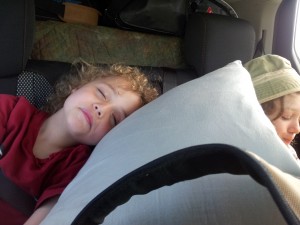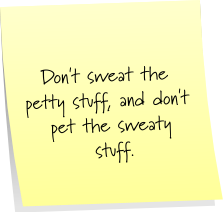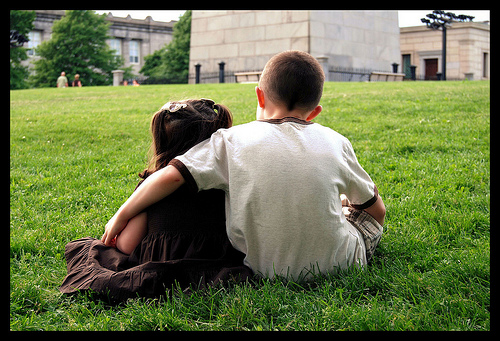A few weeks ago, there was a story in our local community newspaper about a boy with autism who had been asked to leave a restaurant, along with his mother. When I first read the headline – Autistic boy booted from restaurant – I felt outrage on behalf of the mother and child. But when I read the story, I found my sympathies shifting to the restaurant manager.
What happened was that a mother and her son with autism were eating at a fast food restaurant, and the child started melting down over something. He was shrieking and banging on the table, and at one point he grabbed a fistful of fries and threw them. The mother made little effort to soothe the child, saying, “He has autism. There’s nothing I can do.” When the manager politely asked her to leave, she complied, but in the aftermath she made a big deal of the fact that her son had been discriminated against because of his autism. The manager made a big deal of the fact that the child had been acting in a manner that was disruptive to other diners.
Anyone who’s been reading this blog for any length of time will know that I’ve dealt with my share of autism meltdowns. I’ve been that mother whose child kicks and screams in public places. I’ve been on the receiving end of the stares and comments, and on two occasions, I have had to offer to pay grocery stores for goods that have been damaged as a result of my son’s outbursts.
But my son’s autism does not entitle him to create a situation that disrupts the activities or enjoyment of other people. When he acts out in public, it’s for one of two reasons: either he is having an autism meltdown, or he’s acting like typical bratty kid. If he’s having an autism meltdown, it’s up to me to try and soothe him, either by removing him from the situation or by finding a way to divert his attention to something else. If he’s acting like a typical bratty kid, it’s up to me to discipline him and make it clear to him that bad behaviour is not acceptable.
Either way, it’s never OK for me to use my child’s disability as an excuse to let him behave in a way that impacts other people. He may have autism, but he still has to be held to a certain standard of behaviour, just like the rest of us. That restaurant manager was not reacting to the fact that the boy had autism. He was reacting to the child’s disruptive actions and the mother’s failure to do anything.
There was a story in the news a few years back about a child with autism who was removed from a plane under similar circumstances. He was lying in the aisle having a meltdown while the flight attendants and other passengers were trying to step over and around him. All attempts to get him settled in his seat were failing, and eventually the boy and his father were taken off the plane. My Facebook feed erupted in outrage as people accused the airline of discriminating against the boy with autism.
But really, what was the airline supposed to do? Delay the flight until the meltdown was over, which could have taken hours? Take off with a boy kicking and screaming in the aisle? Allow the behaviour to continue without regard for the safety of the flight attendants or passengers? My view was very unpopular, but I believe that the airline took the only action they really could. They would have done what they did whether the child had autism or not. In fact, from what I could glean from the story, the airline actually delayed their decision to remove the child because they had been made aware of his autism.
This subject reminds me of a conversation I had many years ago, when I was still in South Africa. I was talking to a co-worker about a high-profile murder case in which the accused had been convicted and sentenced to life in prison. Evidence against this individual had been overwhelming, in terms of forensics and witness accounts. My co-worker, a black man, told me that this man had been sent to prison just because he was black. I disagreed.
“No,” I said. “He’s been sent to prison because he killed four people.”
My co-worker did not dispute the fact that the man was guilty, but he was stuck on this idea that the outcome of the trial was symptomatic of racial discrimination. But what was the alternative? Should the judge have let the criminal walk free just to prove that he – the judge – wasn’t a racist?
Should flight attendants, restaurant managers and other people endure a child screaming and throwing things in public just to prove that they don’t discriminate against people with autism?
Discrimination in any way, shape or form is wrong. I do not condone racism, gender discrimination, homophobia or any kind of bias against people with disabilities. I am big on human rights and equality. I believe that accommodations should be made for members of minorities and people with disabilities where possible – like wheelchair accessible buildings, government services in multiple languages and alternative screening processes for job applicants with autism. But I also believe that everyone has a responsibility to be considerate to those around them.
This is an original post by Kirsten Doyle. Photo credit: Dmitry Kalinin. This picture has a creative commons attribution license.















